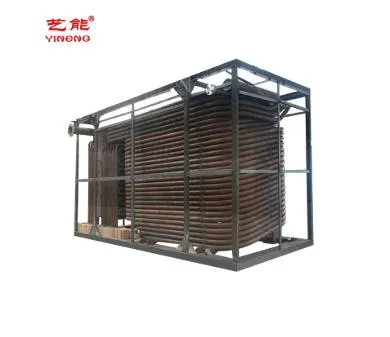Cut Costs and Emissions with Biomass Thermal Oil Boilers
In today’s industrial landscape, businesses face mounting pressure to reduce costs and minimize their environmental impact. A termiki ýag gazany powered by biomass offers a practical and eco-friendly solution for industries seeking efficient heat generation. This article delves into how thermal oil boiler systems, coal-fired alternatives, and advanced industrial coal boilers are transforming energy practices in manufacturing and beyond.

Thermal Oil Boiler: Efficiency and Flexibility in Heat Generation
A termiki ýag gazany is a closed-loop heating system that utilizes a thermal fluid to transfer heat efficiently. Unlike steam boilers, thermal oil systems operate at lower pressures while achieving higher temperatures, making them safer and more energy-efficient.
Modern thermal oil boiler systems can be fueled by biomass, coal, or natural gas, providing flexibility for various industries. Biomass-based systems are particularly appealing due to their sustainability and ability to utilize agricultural residues, wood chips, and other renewable fuels. These features make them a preferred choice for food processing, textiles, and chemical manufacturing.
Thermal Oil Boiler System: A Customized Solution for Industrial Needs
A well-designed thermal oil boiler system enhances energy efficiency and provides precise temperature control. These systems are engineered to meet specific industrial demands, offering solutions for high-temperature processes such as drying, distillation, and sterilization.
The seamless integration of a thermal oil furnace within these systems ensures uniform heat distribution and consistent performance. This adaptability makes them invaluable in sectors such as pharmaceuticals and petrochemicals, where precise heat control is paramount.
Thermal Oil Furnace: The Core of High-Performance Boilers
The thermal oil furnace serves as the heart of any thermal oil boiler system, responsible for heating the thermal fluid. Advanced furnaces use biomass or coal as fuel, achieving high combustion efficiency while minimizing emissions. Innovations in furnace design, such as optimized airflow and advanced heat exchangers, further enhance energy savings.
Industries relying on a thermal oil furnace benefit from reduced energy costs and lower carbon footprints. The ability to use renewable biomass fuel ensures compliance with stringent environmental regulations, providing a competitive edge in the marketplace.
Coal-Fired Boiler: Meeting Demands with High-Output Efficiency
The kömür remains a mainstay in industries requiring large-scale heat output. These systems burn coal to generate thermal energy, offering consistent and reliable performance. While coal-based systems are traditionally associated with high emissions, modern designs incorporate advanced emission controls and efficient combustion technologies to address environmental concerns.
For industries with access to biomass, co-firing options allow a kömür to utilize renewable fuel alongside coal, reducing overall emissions while maintaining high efficiency. This transition is particularly beneficial in energy-intensive sectors like power generation and heavy manufacturing.
Industrial Coal Boiler: Robust Solutions for Large-Scale Applications
The industrial coal boiler is engineered to handle the energy demands of large facilities. Its robust construction and automation features ensure reliability and consistent performance, even under challenging conditions. Industries such as steel production, paper manufacturing, and mining rely on these boilers to power essential processes.
To meet modern environmental standards, industrial coal boilers now feature integrated technologies such as flue gas desulfurization and electrostatic precipitators. These advancements reduce particulate emissions and improve overall sustainability, making coal-based systems a viable option for industries undergoing gradual transitions to cleaner energy sources.
The transition to sustainable and efficient heating systems is critical for industries aiming to cut costs and reduce emissions. A termiki ýag gazany or thermal oil boiler system offers unparalleled efficiency and flexibility, with biomass providing a renewable and eco-friendly fuel source. Meanwhile, the thermal oil furnace, kömür, and industrial coal boiler continue to play vital roles in industrial applications, benefiting from modern innovations that enhance their environmental performance. Adopting these advanced solutions enables businesses to align operational goals with environmental responsibility, ensuring long-term success in an evolving energy landscape.
-
Thermal Oil Boiler: Efficient Heating for Industrial ApplicationsHabarlarMar.03,2025
-
Thermal Oil Boiler: Your Key to Reliable High-Temperature OperationsHabarlarMar.03,2025
-
The Versatility and Efficiency of Thermal Oil Boilers in Modern IndustriesHabarlarMar.03,2025
-
The Efficiency and Versatility of Thermal Oil Boilers for Modern IndustriesHabarlarMar.03,2025
-
Exploring the Versatility of Thermal Oil Boilers in Modern IndustryHabarlarMar.03,2025
-
Comprehensive Insights into Thermal Oil Boilers for Industrial ApplicationsHabarlarMar.03,2025

